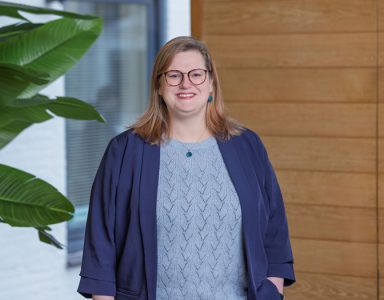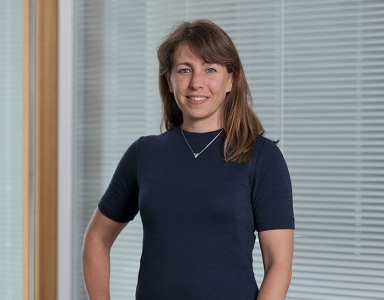Guide to a successful MSCA application: three essential things you need to know
The Marie Skłodowska-Curie Actions (MSCA) aim to raise the level of excellence in Europe’s science and innovation by investing in the long-term careers of the most promising researchers. It offers funding for different career stages and types of training. Training programmes for a large group of early stage researchers are extremely suitable for the Doctoral Networks or the COFUND calls. Through years of experience, Hezelburcht has learned a lot about the MSCA. Three important lessons are essential to a successful MSCA application.
What Hezelburcht has learned about the MSCA
Hezelburcht has gained extensive experience in the MSCA under Horizon 2020 and Horizon Europe in the application process and project management of successful projects. Here are three crucial lessons that we have learned:
1. Achieve impact
It must become evident for reviewers that your training programme is essential in solving a major societal or technical challenge from the start of the very first page of your application. Why are you the crucial player to tackle this challenge? And more importantly, how will you ensure that this training programme is sustainable and will form the basis of training in a novel field? Don’t forget that reviewers also expect a return of investment! So emphasise how your training programme will achieve significant impact in Europe and how you will enhance the career perspectives of the participants.
2. It is all about training
Keep in mind that MSCA does not provide your regular science grant: far from it! MSCA support inclusive training schools, their scientific portion is very limited and you need to invest significant time in building your training programme. Eligible training schools follow the Principles for Innovative Doctoral Training, which dictates that the training of researchers should be international, intersectoral, and interdisciplinary. As such, transferable skills, diversity and inclusion, and entrepreneurship are examples of topics that are equally essential components of a training programme as courses on its scientific subject. Secondments are also a critical aspect of a training programme that ensure that each participant will gain valuable experience on collaboration and different working environments.
3. The whole is greater than the sum of its parts
Interdisciplinarity is key in defining your cutting-edge topic. Successful applications are comprised of multiple disciplines that gravitate and support each other around a common theme. The participants in these training programmes gain enough knowledge to understand each relevant discipline and allow interdisciplinary collaboration, all the while becoming experts at conducting research in a single discipline or at the interface of two or multiple disciplines. Also highlight the interactions between the individual projects while ensuring that participants remain independent.
Contact us for more information
Interesting programmes to apply for
These three lessons can be applied to any MSCA application for the upcoming Doctoral Networks and COFUND calls. This is what you need to know about these programmes:
Doctoral Networks for doctoral candidates with international ambitions
The Doctoral Networks action (previously known as the Innovative Training Networks) is aimed at training doctoral candidates in the widest sense of the word. It is not only essential to train the candidates with new knowledge and skills, but also through international and intersectoral exposure throughout their training. Funding is available for international consortia of academic and non-academic organisations that:
- aim to implement doctoral programmes that address well-identified needs in various research and innovation areas;
- expose the candidates to academic and non-academic sectors;
- offer training in research, transferable skills and competences that provide them all the tools for a long-term career.
When to apply?
The upcoming Doctoral Networks call is expected to launch on 30 May 2023. The deadline for submitting proposals is 28 November 2023.
COFUND for doctoral candidates or postdoctoral researchers in local training programmes
The COFUND action has a similar scope to the Doctoral Networks, but it is aimed at training doctoral candidates or postdoctoral researchers in a local training programme and is open for either single applicants or consortia. In contrast to the Doctoral Networks, COFUND requires matching of the funds and it is therefore important to ensure sufficient matching before you start writing your application. A COFUND training programme should also be aimed at training of knowledge and skills at multiple levels with international and intersectoral exposure for all participants to enhance their career perspectives.
When to apply?
The current COFUND call won’t close until 9 February 2023. The next call is expected to be launched from 10 October 2023 until 8 February 2024.
Considering to apply?
Are you preparing your COFUND application and in need of a final check before submission? Or are you already preparing your programme for the upcoming Doctoral Networks or COFUND calls? Our specialists have a broad experience with the MSCA and would be pleased to provide you with advice and support. Please contact us to explore how Hezelburcht can help you with your application!
Personal advice? Contact us!
Or call us directly: 088 495 20 00




